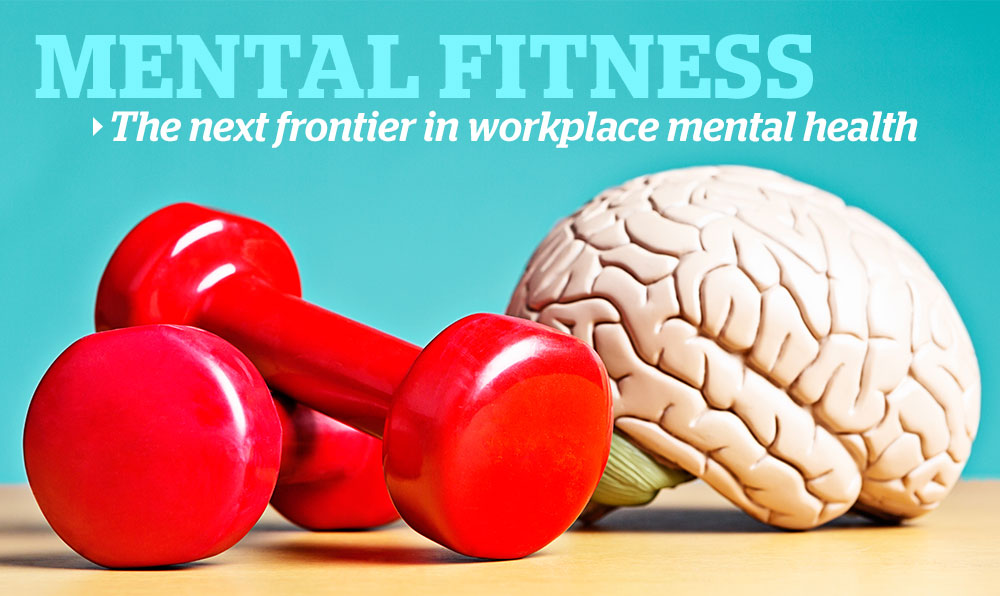

Columns/Blogs
Features
Mental Health
Mental fitness success dependent on navigating pain-pleasure paradigm
By Bill Howatt

EDITOR’S NOTE: ‘Mental Fitness: The next frontier in workplace mental health’ is a weekly series, in partnership with Dr. Bill Howatt of Howatt HR Consulting in Ottawa. This series takes a deeper look at mental fitness — an approach to prevent mental harm and promote mental health.
People are motivated to go towards pleasure and away from pain. This paradigm, at the core of most human behaviour, can explain why some relationships work and others fail and why many habits are formed.
So if you want to keep a relationship you care about, pay attention to the kind of experiences you create for the other person. Most of us put more weight and attention on negative experiences. Whether that is fair, it is reality.
The same is true with developing healthy habits that require space and time to develop. If we do not get the perceived desirable outcome quickly, many of us anchor the action as being ineffective and adding no pleasure.
That often results in a relapse to old, ineffective habits that bring the illusion of pleasure but at a cost, such as night snacking to feel better.
Mental fitness is the daily habit of taking care of emotional well-being by generating pleasant emotions. It requires developing the knowledge, skills, and habits to obtain the pleasure that good mental health brings.
To begin, decide that your emotional well-being matters and make your physical and mental health a top personal value. Values help you decide what you will and will not do.
You must accept and understand the power of your belief system that tells you what is good and bad for you, based on your life experiences. Much like a baseball umpire calling strikes and balls, you can reframe your experiences as, “I failed to…” or, “I had the opportunity to discover…”
Vocabulary and words matter a great deal as they attach the emotions that define something as pain or pleasure.
For example, you meditate with the belief that you should feel better afterwards but after meditating for 15 minutes you realize it was hard and not enjoyable. This can create the belief that meditation is not fun, and meditation gets anchored as pain.
But if you approach meditation with the right frame of mind, with the focus on learning to meditate to calm your mind and slow down your thoughts, this puts your focus on the benefits and pleasure of having a calm mind that is not reactive.
This can set you up to finding the true pleasure of meditation that millions enjoy daily.
Psychologically Safe Workplace Awards provide employers tools, data on mental health
Tips for navigating the pain-pleasure paradigm
Set your internal rule
Decide to not judge the value of meditation until after six months, to provide time to receive its benefits.
Internal rules can help set the expectations for why you are doing something and focus your mind on pleasure. The positive words you say to yourself matter as they create the beliefs you attach to your experiences.
All emotions are helpful
Notice emotions as information that can guide your decision-making; they do not have to define it. Painful emotions do not need to mean stop and go away.
If something you are doing for mental fitness is creating more pain than pleasure, be curious as to why. Instead of accepting these unpleasant emotions as roadblocks, use them to inspire questions that can help get your focus on the pleasure of mental fitness or an issue you are dealing with.
Perhaps it has nothing to do with your mental fitness plan. It may be something at work or home that is bugging you and requires your attention. Questions that inspire positive thoughts can help problem solving to reframe pain into opportunity: “Who do I want to be today? How do I want to show up for me and others? How important is it to feel in charge of my decisions?”
Pay attention to your belief system
What you tell yourself you will believe. If you say something is hard and not helpful, you will believe this to be true. Mental fitness is about making small decisions every day that create more pleasant emotions.
The purpose is to learn how to spend more time living your day-to-day life in a state of pleasure rather than pain. Getting to pleasure requires clarity that there are no shortcuts and that pain can be a powerful motivator for short-term, quick fixes.
Living a life of pleasure requires playing the long game of accepting that daily micro-decisions matter as they create the habits and beliefs that define our emotional well-being.
 Dr. Bill Howatt is the Ottawa-based president of Howatt HR Consulting.
Dr. Bill Howatt is the Ottawa-based president of Howatt HR Consulting.
If there is a particular microskill or topic you would like to see Dr. Howatt write on that supports employees’ mental health in the workplace, please send your request to Talent Canada editor Marcel Vander Wier.
Print this page